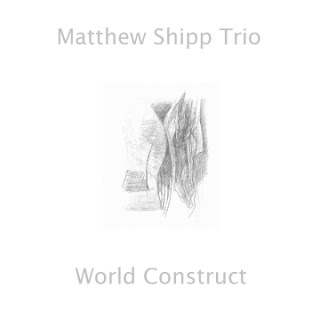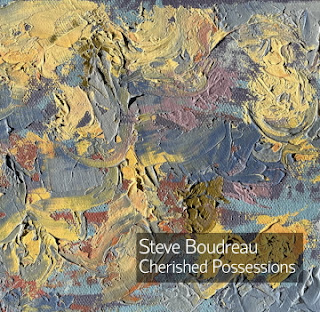The piano trio format never seems to go out of style. And why should it, when a unit of piano, bass, and drums is capable of taking advantage of virtually any musical approach, from playing faithful versions of standards on the one hand to totally free improvisation on the other, and everything in between. Each season seems to bring forward a new batch of recordings, so here’s a look at some of the latest releases.

A concept that has proved successful time and again is a collection of tunes by a single composer. On The Town, wherein Pete Malinverni Plays Leonard Bernstein, is a solid addition to the trio literature. With the simpatico backing of bassist Ugonna Okegwo and drummer Jeff Hamilton, the veteran pianist Malinverni offers an hour of Bernstein’s music, plus A Night on the Town, an original composition in his spirit. The material is mostly drawn from Bernstein’s music for Broadway in the shows On The Town (1944), Wonderful Town (1953) and West Side Story (1957), recently revitalized by the Steven Spielberg film. Save for Some Other Time, a particular favorite of Bill Evans, Bernstein’s music has not been played all that much by improvisers, but Malinverni makes a case for revisiting these songs. From the first chorus of New York, New York, you know that you’re in for a treat for the next hour. Malinverni’s keen melodicism, Okegwo’s emphatic groove, and Hamilton’s joy-filled drive make a perfect combination. As a bonus, Malinverni’s liner notes relate a few choice anecdotes relating to Bernstein, plus a brief discussion of the maestro’s characteristic musical patterns. He concludes by passing on his hope that in listening to On The Town, “you will be reminded of the greatness of Leonard Bernstein while seeing that his wonderful songs can take a little twisting and turning, without losing their innate beauty.” Mission accomplished! Highly recommended.
Planet Arts; Pete Malinverni (p) Ugonna Okegwo (b) Jeff Hamilton (d); Englewood Cliffs, NY, April 11, 2021; New York New York/ Lucky to Be Me/ Somewhere/ Cool/ Simple Song/ I Feel Pretty/ Lonely Town/ Some Other Time/ It’s Love/ A Night on the Town; 59:30. www.PlanetArts.org

Pianist Armen Donelian composed five of the songs for his latest CD, Fresh Start, with his new trio of bassist Jay Anderson and drummer Dennis Mackrel. The balance of this largely compelling release comes from writers as varied as fellow pianist Richie Beirach (Gale), Indian drummer Vatan Rajan Singh (Ferry Maiden), and the late multi-instrumentalist Makanda Ken McIntyre (Day Break, from a 1975 quartet date on SteepleChase), plus a brief group improvisation (Tales in the Western Night) that fades out to end the disc. Also on the program are a pair of standards (I’m Stepping Out With a Memory Tonight, from 1940, and Never Let Me Go, from 1956). On the former, Donelian sings and plays piano, with Anderson and Mackrel overdubbing their parts later. Let’s just say that Donelian is not much of a singer, but given all the work that went into the production, the lyric must mean something special to him. The mood of Donelian’s new music, written during the pandemic, naturally enough is often melancholy and wistful but with an optimistic core of innate lyricism. One key to the success of this release the way the instrumental focus keeps shifting, often unexpectedly, from piano to bass to drums. It helps, naturally, that Donelian has such astute companions in this journey. Bassist Anderson is a stellar accompanist in this setting. He is no less formidable and inventive as a soloist, and his frequent solos are a pleasure. Drummer Mackrel, a solid and understated swinger, completes the superbly balanced trio. His delicate cymbal work is especially fine. Some of the highlights: the slow to develop In the Western Night, which unfolds rather beautifully over six minutes, the captivating Noviembre which opens the CD, and the way the trio caresses the melody of Never Let Me Go. All told, this session is indeed a Fresh Start for a reinvigorated Armen Donelian. It’s well worth your time.
Sunnyside SSC 4036; Armen Donelian (p, vcl on *) Jay Anderson (b) Dennis Mackrel (d); Saugerties, NY, June 14, 15 & 17, 2021, exc. *piano & vocal, October 16, 2020; Noviembre/ Fresh Start/ Ferry Maiden/ Madagascar/ Gale/ Never Let Me Go/ Tirado/ In the Western Night/ Day Break/ Janet Left the Planet/ I’m Stepping Out With a Memory Tonight*/ Tales in the Western Night; 64:23. www.sunnysiderecords.com

Tyshawn Sorey, usually playing drums, has been involved in at least 100 recording sessions since his debut in 2002 on saxophonist Andre Vida’s Child Real Eyes. Since then, this endlessly creative musician has worked with such luminaries as Anthony Braxton, Vijay Iyer, Billy Bang, Steve Lehman, Steve Coleman, Kris Davis, Henry Grimes, Pete Robbins, Roscoe Mitchell - the list goes on and on. But the 2017 MacArthur Fellow and Professor of Music, is also a composer of note, who attracted a great deal of attention early in 2022 for his Monochromatic Light (Afterlife). This piece, for chamber choir, keyboards, viola, bass-baritone, and percussion, was written for the 50th anniversary of the Rothko Chapel in Houston. His latest venture is rather different, to say the least. Mesmerism is a thoughtfully selected batch of standards and jazz originals played by the Tyshawn Sorey Trio, with pianist Aaron Diehl and bassist Matt Brewer. Sorey enlisted his drum teacher and mentor Michael Carvin to produce the date, and the results are riveting. Sorey is working here for the first time with pianist Aaron Diehl, with whom Sorey cites “a brotherly connection,” and bassist Matt Brewer, a rhythm section partner on a number of projects over the years. The set leads off with Horace Silver’s Enchantment, with a refined Diehl introduction setting up a snaky groove. From the start, it’s crystal clear that this is a supremely relaxed unit, immersed in powerfully intuitive playing. With Sorey’s sublimely elegant drumming and the unfailingly supportive bass of Brewer prominent in the mix, the music easily fulfills Sorey’s wish to “document the unwavering love and appreciation” he has for these songs. The longest piece here is Detour Ahead, introduced in 1948 and a favorite tune of Bill Evans. Sorey chart takes the title literally with an arrangement that keeps slipping harmonic modulations into the structure to build a beguiling and continuously fascinating performance. Joseph Kosma’s 1945 Autumn Leaves, the oldest piece on the disc, has inspired countless versions over the decades. The Sorey trio’s downtempo take on the familiar melody is utterly relaxed and absorbing. Brewer plays a countermelody to Diehl’s piano while Sorey dances around them before the bassist steps out for a tasteful solo that picks up the pace a bit. Diehl then follows with his own ruminations to take the tune out. Paul Motian’s From Time to Time, premiered in 1991, is the most recent of Sorey’s selections and the song subjected to the most alteration. The taut atomistic arrangement puts particular emphasis on the resonances of each note and the space created by the relationships of the instruments. The trio is effectively “sneaking up” on the melody in a masterful performance. Muhal Richard Abrams’ Two Over One first appeared on Sightsong, the pianist’s 1975 duet album with bassist Malachi Favors Magostut. It’s a simple tune that receives a straight-forwardly swinging rendition here, with bluesy variations by Diehl and loose but slamming drums from Sorey. When a piece by Duke Ellington is performed by a group, it’s always revealing to see what’s picked, since the possibilities are nearly endless. For his Duke selection, Sorey gets right to the core of swinging jazz with the downhome REM Blues. This piece was first heard as Blues For Blanton on a 1950 date for Mercer Records, then revived and retitled for Money Jungle, the phenomenal meeting of Duke, Charles Mingus, and Max Roach in 1962. The trio concludes the CD version of this release with a happy groove, guaranteed to put a smile on your face. Mesmerism is an instant classic, and strongly recommended. And lest you think that the multi- disciplinary Sorey limits himself in any way, I urge you to check out his contribution of a new composition for Johnny Gandelsman’s latest project, This Is America: An Anthology 2020-2021, his remarkable three CD collection of commissions for solo violin that comes out within a week of Mesmerism.
Yeros7 Music; Aaron Diehl (p) Matt Brewer (b) Tyshawn Sorey (d); Brooklyn, NY, May 26, 2021; Enchantment/ Detour Ahead/ Autumn Leaves/ From Time to Time/ Two Over One/ REM Blues*; 47:54. *on CD and streaming only. tyshawn-sorey.bandcamp.com

On their third Savant release, the Alan Broadbent Trio explores even more deeply the obvious connection that pianist Broadbent, bassist Harvie S and drummer Billy Mintz share in the making of seriously swinging trio music. The aptly-titled Like Minds touches on repertoire from across the jazz spectrum, with just one Broadbent original (the gently flowing Prelude to Peace). In my view, any album that opens with This I Dig Of You, my favorite Hank Mobley tune (from Soul Station, 1960), is a sure winner. Broadbent and his mates do the happy groove real justice, and it sets the stage for this satisfying and enjoyable recording. All three players have lists of credits that are long and varied, and anyone paying attention to jazz over the last fifty years has surely encountered these musicians in multiple situations over the years. Let’s just note that they sound better than ever here, having established an authentically organic telepathic connection with this particular trio. Particularly fine are their tasty dissection of With the Wind and the Rain in Your Hair, heard a lot after its introduction by Kay Kyser in 1940 but seldom afterwards, the finger-snapping version at Sonny Rollins’ classic Airegin with some lovely brushwork by Mintz, the perennial Stairway to the Stars, played very slowly and poignantly, and Bud Powell’s Blue Pearl. This one was first heard on disc in 1957 and performed infrequently since then. This trio’s lightly grooving rendition features an inspired series of trades between bass and drums, with Broadbent taking over about halfway through. I was quite taken with the trio’s second album, Trio In Motion, and I’m equally impressed with Like Minds. Happily recommended.
Savant SCD 2198; Alan Broadbent (p) Harvie S (b) Billy Mintz (d); NYC, April 29 & July 27, 2021; This I Dig Of You/ Prelude to Peace/ With the Wind and the Rain in Your Hair/ Dance Only With Me/ Airegin/ Stairway to the Stars/ Blue Pearl/ This is New/ Yardbird Suite; 59:37.
www.jazzdepot.com































